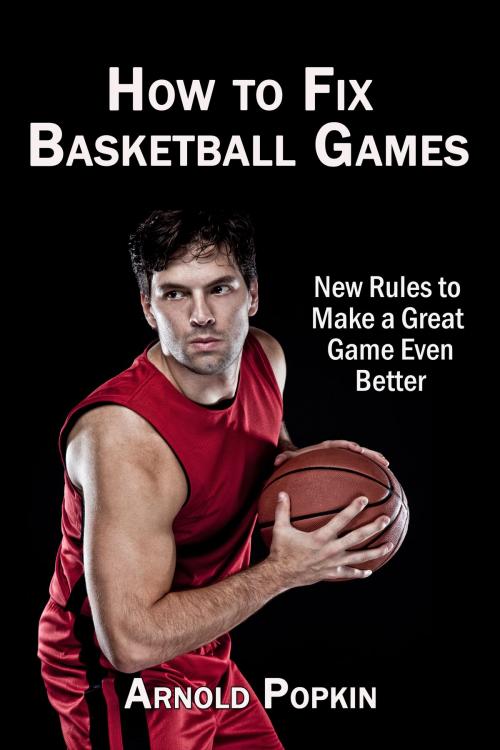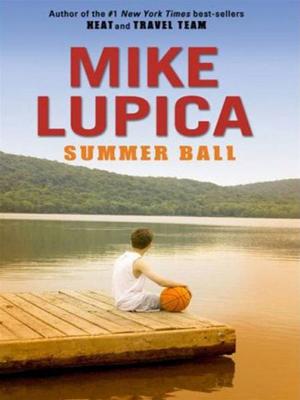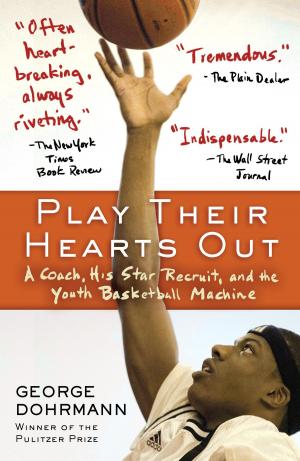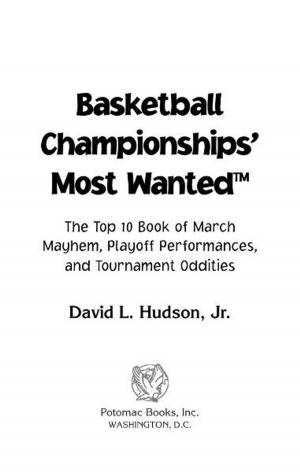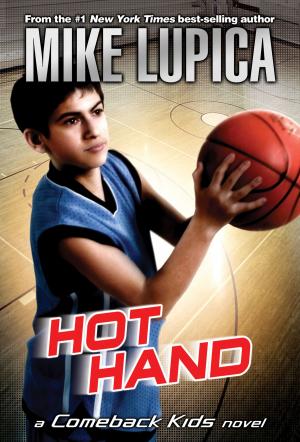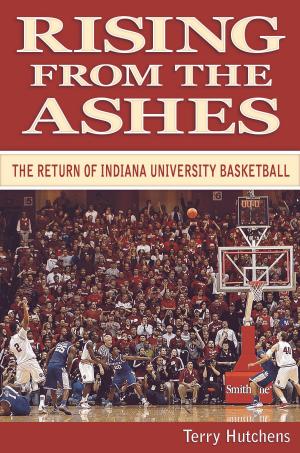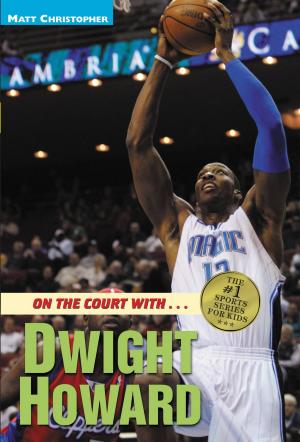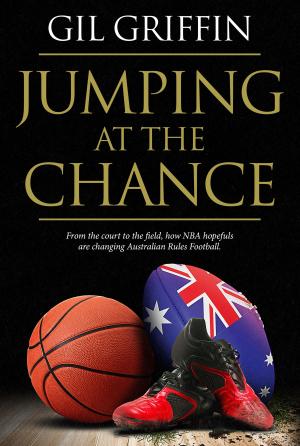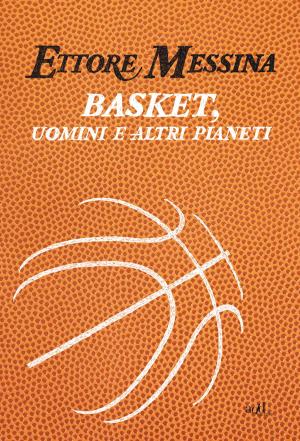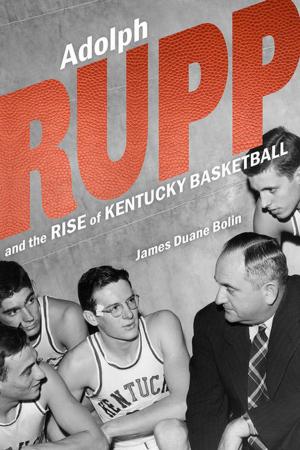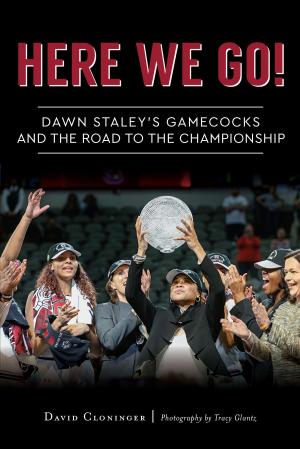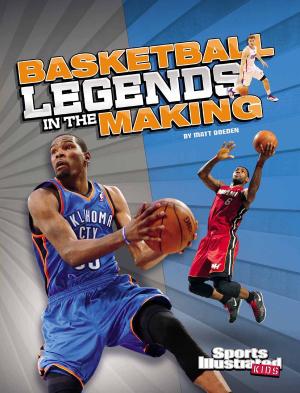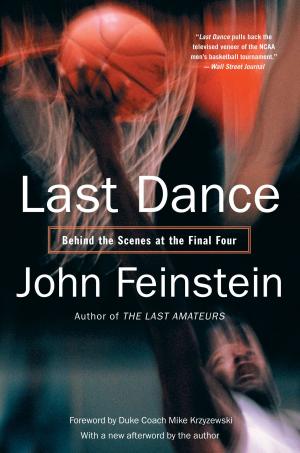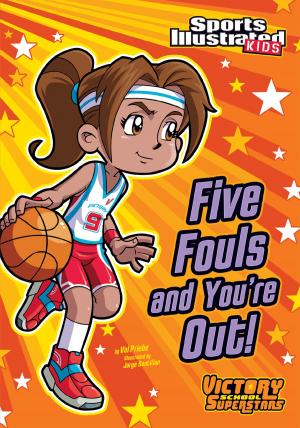| Author: | Arnold Popkin | ISBN: | 9781311626363 |
| Publisher: | Arnold Popkin | Publication: | February 19, 2014 |
| Imprint: | Smashwords Edition | Language: | English |
| Author: | Arnold Popkin |
| ISBN: | 9781311626363 |
| Publisher: | Arnold Popkin |
| Publication: | February 19, 2014 |
| Imprint: | Smashwords Edition |
| Language: | English |
This book presents several good reasons why some basketball rules should be changed to make the game much fairer and more enjoyable. Many people are so used to the present rules that they think that they are hardened in stone and just part of the game. This is easily proven to be wrong by reading all of the changes in basketball rules over the past 100 years. An appendix lists the major changes for the reader’s edification.
The two major rules discussed are intentional fouls near the end of many games and the fouling out rule. Intentional fouling in the last minute of many games is usually disliked greatly by most basketball fans, but accepted grudgingly as part of the game. The team that commits intentional fouls may gain by doing so, and has little to lose. On the other hand, the team that is intentionally fouled has little to gain and possibly may lose by being fouled. This situation is definitely not right or logical. It should always be the other way around. If anyone is to benefit, it should be the team that is fouled. Under the present rules, the team that is ahead has no time to run their offense and take time off the clock. Their offense is often limited to only one second. The entire flow (or lack of flow) is controlled by the team that has committed a foul on purpose. Also, repeated time outs and time to shoot all the fouls may make the last minute of play take 20 minutes of real time. An original suggestion for changing the rule is offered. This rule change is much fairer than the present rules. An important point is that a team that has fairly built a lead in the first 39 minutes of the game should not be possibly penalized by unfair rules concerning intentional fouls in the last minute.
A special situation concerning intentional fouls occurs with under 15 seconds left in the game, and the leading team is ahead by one point and about to throw the ball in. They are usually fouled intentionally right away. They must take 1 or 2 fouls shots, and the team that fouled them now gets the ball back with a chance to tie or win the game. This is extremely unfair. They should not have the right to get the ball back by fouling on purpose.
The fouling out rule is also very unfair at times. Often a star player is charged with his second personal foul after only a few minutes of play, and ends up sitting on the bench for up to 15 minutes. Yet TV replays may show that a foul called by the referee was wrong. This is a great injustice. Similarly, a minor foul or incorrect call on a third or fourth foul may make the player sit on the bench for many minutes. Basketball seems to be the only major sport in which minor infractions can lead to expulsion from the game. Several options are offered that will improve the rules concerning fouling out of the game.
Changing the rules about when time outs can be called will reward good defensive play. Specific situations and changes are explained.
The shot clock in men’s college basketball has been 35 seconds since 1993. Some people think this should be reduced to 24 seconds, as is the rule in the NBA and international basketball, or to 30 seconds, as in women’s college basketball. A discussion follows with reasons for and against changing the shot clock. Another idea is to change the 10 second rule for bringing the ball across the center line to only 8 seconds. This would make the game more exciting.
The final chapter discusses how to improve the use of instant replay in college basketball. Several suggestions are made to make the game fairer and the referees’ calls more accurate.
The overall principle emphasized in the book is fairness. Changing a few rules will make the game much fairer.
.
This book presents several good reasons why some basketball rules should be changed to make the game much fairer and more enjoyable. Many people are so used to the present rules that they think that they are hardened in stone and just part of the game. This is easily proven to be wrong by reading all of the changes in basketball rules over the past 100 years. An appendix lists the major changes for the reader’s edification.
The two major rules discussed are intentional fouls near the end of many games and the fouling out rule. Intentional fouling in the last minute of many games is usually disliked greatly by most basketball fans, but accepted grudgingly as part of the game. The team that commits intentional fouls may gain by doing so, and has little to lose. On the other hand, the team that is intentionally fouled has little to gain and possibly may lose by being fouled. This situation is definitely not right or logical. It should always be the other way around. If anyone is to benefit, it should be the team that is fouled. Under the present rules, the team that is ahead has no time to run their offense and take time off the clock. Their offense is often limited to only one second. The entire flow (or lack of flow) is controlled by the team that has committed a foul on purpose. Also, repeated time outs and time to shoot all the fouls may make the last minute of play take 20 minutes of real time. An original suggestion for changing the rule is offered. This rule change is much fairer than the present rules. An important point is that a team that has fairly built a lead in the first 39 minutes of the game should not be possibly penalized by unfair rules concerning intentional fouls in the last minute.
A special situation concerning intentional fouls occurs with under 15 seconds left in the game, and the leading team is ahead by one point and about to throw the ball in. They are usually fouled intentionally right away. They must take 1 or 2 fouls shots, and the team that fouled them now gets the ball back with a chance to tie or win the game. This is extremely unfair. They should not have the right to get the ball back by fouling on purpose.
The fouling out rule is also very unfair at times. Often a star player is charged with his second personal foul after only a few minutes of play, and ends up sitting on the bench for up to 15 minutes. Yet TV replays may show that a foul called by the referee was wrong. This is a great injustice. Similarly, a minor foul or incorrect call on a third or fourth foul may make the player sit on the bench for many minutes. Basketball seems to be the only major sport in which minor infractions can lead to expulsion from the game. Several options are offered that will improve the rules concerning fouling out of the game.
Changing the rules about when time outs can be called will reward good defensive play. Specific situations and changes are explained.
The shot clock in men’s college basketball has been 35 seconds since 1993. Some people think this should be reduced to 24 seconds, as is the rule in the NBA and international basketball, or to 30 seconds, as in women’s college basketball. A discussion follows with reasons for and against changing the shot clock. Another idea is to change the 10 second rule for bringing the ball across the center line to only 8 seconds. This would make the game more exciting.
The final chapter discusses how to improve the use of instant replay in college basketball. Several suggestions are made to make the game fairer and the referees’ calls more accurate.
The overall principle emphasized in the book is fairness. Changing a few rules will make the game much fairer.
.
